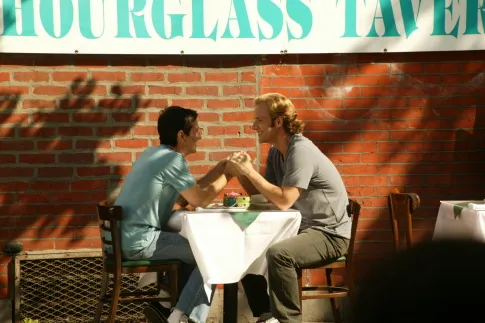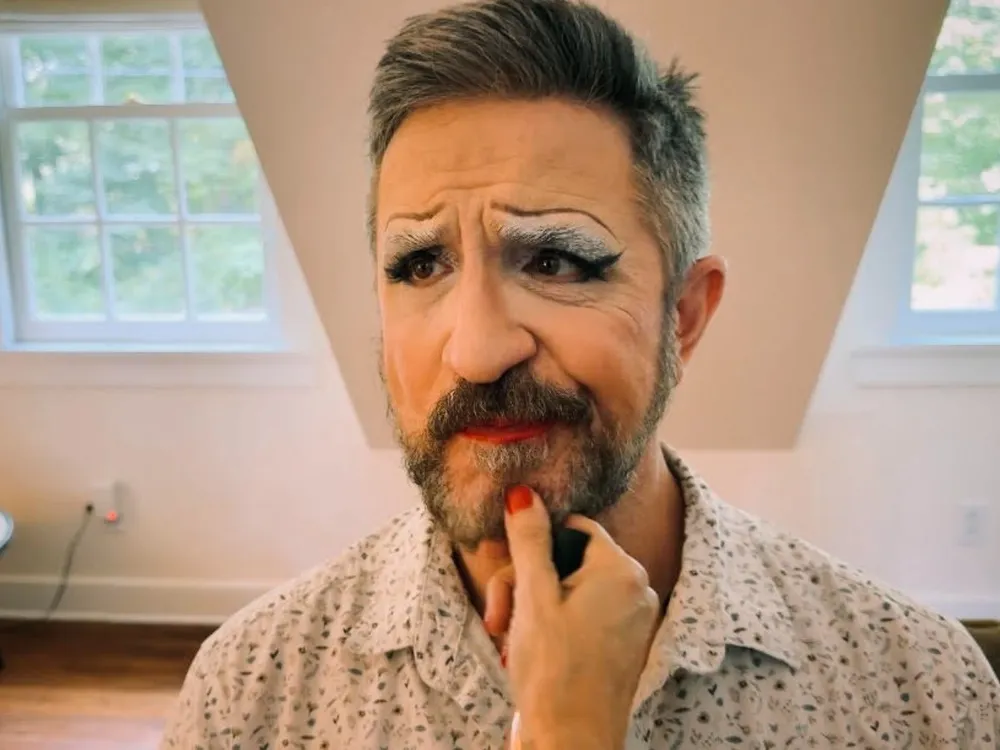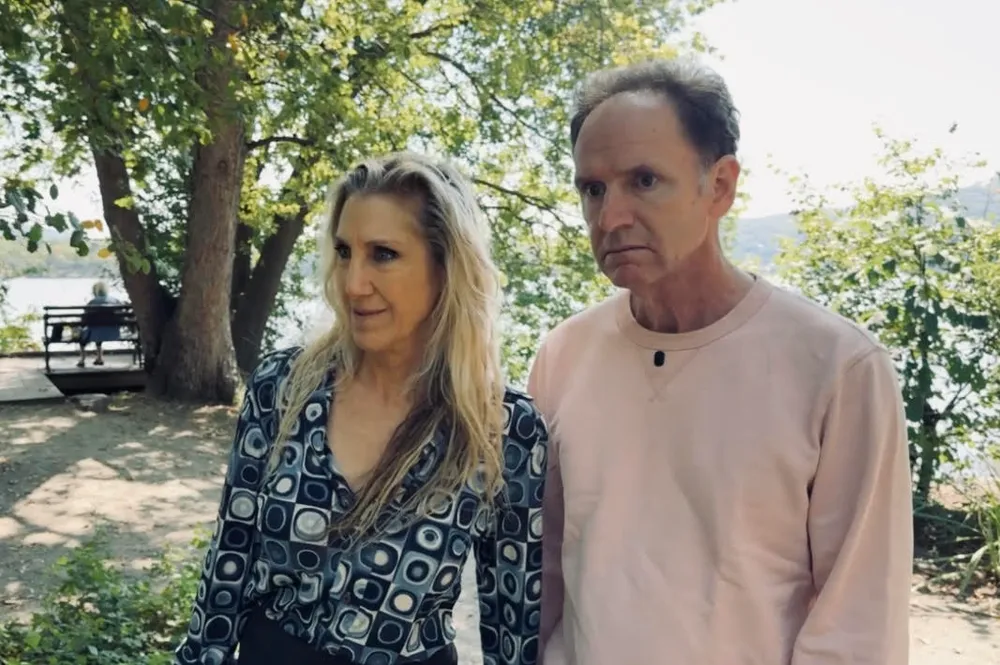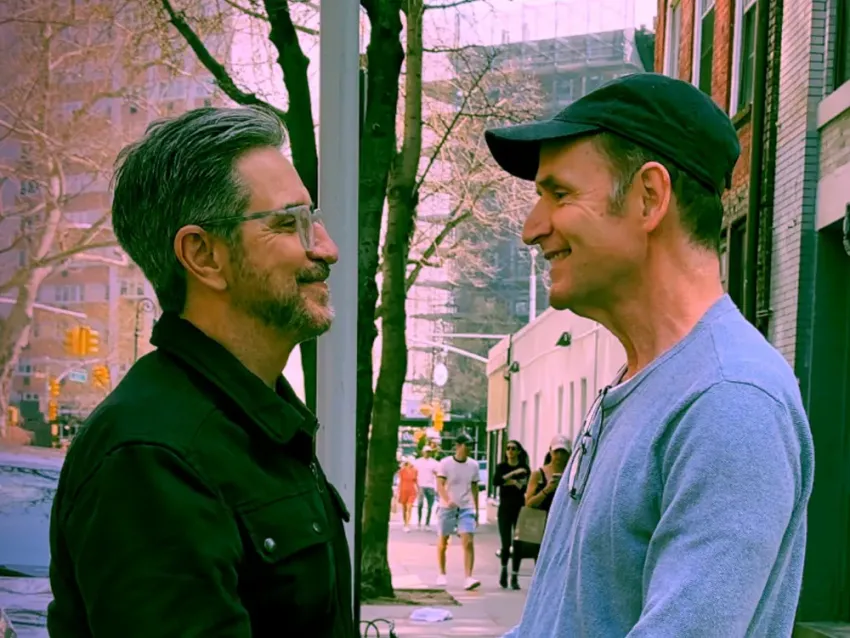Craig Chester is a name synonymous with authenticity, creativity, and resilience in the film and television industry. His path to becoming an acclaimed actor, writer, and director is truly inspiring. From overcoming personal challenges to breaking barriers in Queer representation, Chester’s career stands as a powerful example of perseverance.
Significant challenges marked Chester’s early years. Born on November 8, 1965, in West Covina, California, and diagnosed with long face syndrome at age 15, he underwent extensive reconstructive surgeries to address the condition. This transformative experience shaped his perspective and fueled his determination to pursue a career in the arts. After moving to New York City in 1985, Chester studied at the American Academy of Dramatic Arts, where his acting style caught the attention of industry veterans like Joanne Woodward.
Chester’s breakout role came in the critically acclaimed film Swoon (1992), a retelling of the infamous Leopold and Loeb murder case. His performance earned him an Independent Spirit Award nomination and established him as a force in independent cinema. Over the years, Chester appeared in a string of notable films, including Kiss Me, Guido and I Shot Andy Warhol, showcasing his versatility.
In 2005, Chester wrote, directed, and starred in Adam & Steve, a romantic comedy that has since become a cult classic. The film, costarring Malcolm Gets, Parker Posey, and Chris Kattan, explores the ups and downs of a Gay relationship with humor, heart, and a touch of absurdity. Critics praised Chester’s performance and sharp writing. The film’s blend of slapstick humor and genuine emotion resonated with audiences, cementing its place as a beloved piece of Queer cinema.
Aside from acting, Chester has made significant contributions as a writer with his memoir, Why the Long Face? Published in 2003, it received high praise for its humor and honesty. Chester later moved into television, writing for popular shows like True Blood and creating pilots for major networks. His talent for crafting compelling stories has made him a highly sought-after figure in the industry.
Chester returns with a new web series, Adam & Steve: The Second Coming, bringing back classic characters to address today's political climate. The show explores love, resilience, and resistance, highlighting Queer experiences with Chester's humor.
Eager to learn more about his life and new project, I had the privilege of speaking with him. What follows are his thoughtful and compelling answers to my questions.

Frank Gaimari: As an openly Gay man in the entertainment industry, how has your identity shaped your career and the stories you choose to tell?
Craig Chester: Being an openly Gay man has significantly influenced my career, mainly due to the era I was born into. I came out in 1992, the same year my first film, Swoon, was released. At the time, coming out was widely seen as career suicide, and both my family and agents were deeply concerned about how it might affect my future.
I had just played my breakout role as Nathan Leopold, Jr., earning a Spirit Award nomination for Best Actor and appearing in US Weekly and Interview Magazine. Doors were opening. I was meeting with some of my favorite directors, including Mike Nichols and Martin Scorsese. I was ready for a major acting career, similar to the meteoric rise of a Timothée Chalamet today.
However, the early ’90s marked the height of the AIDS epidemic, a time when my identity as a young Gay man was inseparable from politics. Events like the marches on Washington and the "Silence = Death" movement weren’t just historical moments — they were also deeply personal. Staying in the closet would have meant compromising my integrity, and I knew I couldn’t do that and still respect myself.
I believe being openly Gay led to a far more interesting career. As a Gay actor, I have embraced Queer roles in a series of compelling films, where my identity has become an asset rather than a limitation. When I transitioned to writing, my first screenplay, Save Me, was developed at Fox Searchlight and explored the ex-Gay movement. That was followed by Adam & Steve. In many ways, my politics and experiences have entirely shaped my career and the stories I choose to tell.
FG: Your work explores themes of love and relationships in the LGBTQIA+ community. How much of your personal experience influences the stories you write about?
CC: Everything I write or respond to as an actor is almost always based on my own experiences, and I’ve always drawn inspiration from my life. For three years, I had a monthly Sex and the City-type column in Genre Magazine, where I wrote about dating and being a Gay actor. That column is what led to my book deal for my memoir.
FG: Adam & Steve has become a cult classic in Queer cinema. What inspired you to write and direct such a bold and hilarious love story, and did you expect it to resonate so deeply with audiences?
CC: I wrote Adam & Steve because, for years, I would attend Gay film festivals, stand on stage, and do Q&A sessions for all these dark Queer movies I was in — where I was playing a murderer, a drug addict, or some effete, bitchy snob. I started noticing that the audiences at these festivals were almost always Gay couples. One time, someone raised their hand and asked, “When will someone make a movie about us — normal Gay guys in a relationship?” I thought, “Hmmm, good point. I’ll make that movie.”
The inspiration, I suppose, came from my own life. I’ve had boyfriends, met the parents, and experienced all the things you see in mainstream romantic comedies, but I wanted it to feel authentic to my experience as a Gay man. It was close to my real life — Parker Posey really was my best friend, and I wrote the part for her. What you see on screen is what our friendship was like at the time. I was new to recovery, so I included that. The unlucky family is very much based on my own. So, you know, write what you know!

FG: As an actor and director, how do you balance the creative demands of being in front of and behind the camera? Which do you prefer?
CC: I absolutely hated directing the movie. I'm not a director, and the original director was let go two weeks before we started shooting, so I stepped in at the last minute. It was just so much to handle — directing and going to western dance-off rehearsals at the same time. I'm a perfectionist, and as an actor, I take my craft very seriously. Acting requires concentration, and it isn't easy to stay focused when you're juggling a million things in your mind, including being the director. But I did it, and it turned out fine.
I do enjoy postproduction, though. I loved working with Roddy Bottum on the score, and editing was fun. Now that I've directed the web series and played Adam again, I’ve found it easier the second time around. If I direct again, it will only be because I’m a writer, and directing is a means to an end — to ensure what’s in my head makes it onto the screen.
FG: The chemistry between you and Malcolm Gets in Adam & Steve was electric. How did you approach casting and building that dynamic on-screen?
CC: When I wrote Adam & Steve, I was making extra cash doing screenplay coverage for Miramax. Each week, I would receive a stack of scripts to break down for the movie executives, summarizing what each was about and whether it should move forward or not. From that experience, I learned that comedy is difficult to read, and tone is challenging to communicate effectively on the page.
The Adam & Steve script, on paper, was incredibly over the top — almost John Waters-esque. Within the first ten pages, there’s coke, vomit, and diarrhea! I knew in my head that my movie was also very sweet, but that sweetness didn’t come across on the page. So, instead of sending the script out for potential producers to read, I staged live readings with my friends in NYC and invited producers to the performances. That way, I could control how it was perceived and bring out the sweetness through the performances.
The staged readings themselves gained some popularity. Alan Cumming played Steve in one of them, and in another, I played Steve opposite Mike Albo as Adam. One day, I was sitting across from Malcolm Gets in a social setting and thought, “Huh, he might be good to play Steve in one of these readings.” We did the reading, and that one featured me as Adam, Malcolm as Steve, Parker as Rhonda, and Chris Kattan as Michael. That night was magical. Malcolm and I had this natural but very real chemistry, and so did Parker and Chris. It all just came together.
I absolutely love Malcolm as a person. I love him in a way that exists in its own category — because we have this movie together, this baby, in a sense. He is my movie husband, and I would literally do anything for him. Our on-screen chemistry is one of those inexplicable things, and it’s still there, 20 years later.
FG: Your new web series, Adam and Steve: The Second Coming, sounds like a fascinating continuation of the story. What inspired you to revisit these characters in today’s political climate?
CC: The first conversation I had about the election last November was with my producer, Kirkland Tibbels, who produced Adam & Steve and was set to produce its sequel this year. However, he told me that, because Trump won, our potential investors suddenly got cold feet — and not only that but they were also leaving the country!
It’s always hard to make an indie film, let alone a Gay one. However, with all the uncertainty in the market, it became even more challenging. I was in Florida at the time and called my friend Emily Lansbury to vent about our investors leaving the country and how Project 2025 was going to become a reality. Emily said, “You should just make some Adam & Steve TikToks about this bullshit! Instead of having them retire, have them running away from Christian nationalists!” I loved the spirit of that idea so much that I wrote ten episodes, assembled a group of funny actors, and shot it.
In this post-MAGA world I’ve created, Adam and Steve’s marriage has no value to anyone but them. The series explores what it means to be a Gay person in America today. It’s much darker than the first film, but we’re hoping it will lead into the movie sequel.

FG: Can you share any details about the cast? Are there any returning actors from the original film, or new faces we should be excited about?
CC: We had no budget to produce this web series, so it doesn't feature any big-name actors. However, I was able to cast some of my favorite comedians. Nadya Ginsberg, who had a small part in the first movie (as a drunk cocktail waitress at Parker’s comedy club), absolutely blew us all away in this. I think she’s a genius. The same goes for Irene Bremis, whom I met when I was a guest on a podcast she cohosts with Rachel Dratch, called Woo-Woo. I had seen Irene’s comedy special on Netflix and was thrilled to get her on board — they both play crazy MAGA Christian ladies.
Michael Musto and Charles Busch also have cameos — they’re in the Gay work camp that Adam is sent to! Cherry Dazzle, one of the Dazzle Dancers in the first movie, plays a vital role in the show, reprising her original character. And Nora Burns and David Ilku, who I’ve been a fan of forever, are also part of the cast.
FG: What has been the most exciting or challenging part of creating this web series, and how does it differ from your experience making the original Adam & Steve film?
CC: The most exciting thing about doing a web series is how immediate it can be. Unlike a movie, which takes a year to come out and go through the entire process — film festivals and the like — we can create content and storylines that are truly current. The downside of that is that it will probably feel dated eventually, serving as a real time capsule.
It was an absolute pleasure speaking with Craig Chester: his passion, creativity, and sharp wit are evident in all his endeavors. This fall make sure to watch Adam & Steve: The Second Coming — it’s a bold, hilarious, and thought-provoking series that is not to be missed!
Adam & Steve: The Second Coming trailer: https://www.youtube.com/@adamandstevethesecondcoming
Why the Long Face?: https://a.co/d/ijTCnnC
Frank Gaimari is an author, film reviewer, and actor based in Seattle. He lives with his husband and their two golden retrievers. Learn more about his work at FranksFilmReview.com .
Support the Seattle Gay News: Celebrate 51 Years with Us!
As the third-oldest LGBTQIA+ newspaper in the United States, the Seattle Gay News (SGN) has been a vital independent source of news and entertainment for Seattle and the Pacific Northwest since 1974.
As we celebrate our 51st year, we need your support to continue our mission.
A monthly contribution will ensure that SGN remains a beacon of truth and a virtual gathering place for community dialogue.
Help us keep printing and providing a platform for LGBTQIA+ voices.
How you can donate!
Using this link: givebutter.com/6lZnDB
Text “SGN” to 53-555
Or Scan the QR code below!



